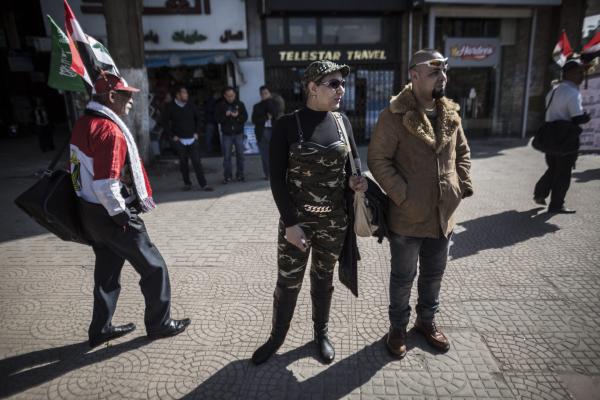About 300 people gathered in Cairo’s Tahrir Square on Monday, not to celebrate the instigators of the revolt that five years ago overthrew Egypt’s longtime ruler Hosni Mubarak but to praise the police who tried to stop them.
“We are here to celebrate with our brothers, fathers, and colleagues in the Egyptian police… who sacrificed their lives and blood for us,” said one of the demonstrators, 52-year-old home appliance repairman Refaat Sabry.
He wore a pin on his jacket depicting Abdel Fattah al-Sisi, Egypt’s latest general-turned-president, whose crackdown on both the youth activists who led the 2011 revolution and the Islamists it later brought to power has dashed their hopes for a new era of political freedom.
“Continue Mr President,” read a placard held by one man, flipping the demand for “the fall of the regime” — the rallying cry of the Arab Spring uprisings that shook entrenched leaders from Tunisia to Yemen in a single fateful year.
Five years on, some of the countries touched by the revolts have slipped into war or chaos and others have seen the return of rulers less willing than ever to tolerate criticism.
“Five years since the start of the great Egyptian revolution… the counter-revolution has been able to take control once again,” said a statement from 6 April movement, which was at the forefront of the 2011 uprising.
“The revolution is not over. It continues and its goals remain in the hearts of all the Egyptians who backed it for the sake of a free, strong and advanced nation…”
The first democratic elections held after the revolt saw the Muslim Brotherhood, Egypt’s oldest Islamist movement, emerge from the shadows to dominate both parliament and presidency.
Sisi, then Egypt’s military chief, removed President Mohamed Mursi from power in 2013 and banned the Brotherhood after a turbulent period in which protests against the group grew.
In the weeks that followed, hundreds of Mursi’s supporters were killed in the streets and thousands were locked up in the bloodiest crackdown in Egypt’s modern history.
Liberal and leftist activists, some of whom had supported Sisi’s move to depose the Brotherhood, soon found themselves on the wrong side of the new authorities, which now flag protests against Mursi that began on June 30 as the real revolution.
New laws were passed, curbing protests and expanding the jurisdiction of military courts. Sisi went on to win a presidential poll with almost 98 percent of the vote.

